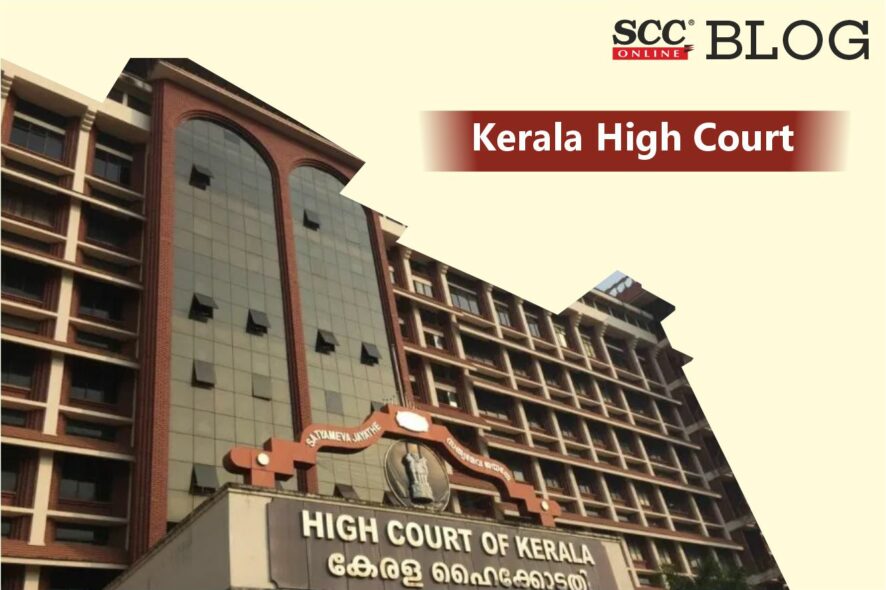Kerala High Court: In a POCSO case, Kauser Edappagath, J., upheld the Trial Court’s judgment convicting a father for sexually assaulting his minor daughter.
The appellant-accused had assailed the Trial Court’s judgment of conviction and sentence convicting the appellant for an offence punishable under Section 9(n) read with Section 10 of the Protection of Children from Sexual Offences Act, 2012 (POCSO Act) for sexually assaulting his 15 years old daughter.
The Trial Court convicted the appellant and imposed a sentence of five years’ rigorous imprisonment with a fine of Rs.25,000.
Grievances of the Parties
Assailing the impugned order of the Trial Court, the appellant contended that the conviction was based on the uncorroborated testimony of the child witness which suffered from contradictions and omissions. Further, the appellant alleged that there was inordinate delay in reporting the matter and lodging the FIR and that the age of the victim had not been legally proved.
The victim deposed that even at the age of 7 years, the accused had sexually abused her by making her lie on his body and also touched her private parts. The victim submitted that thereafter the appellant went to Gulf and after returning, he regularly assaulted her sexually by catching her breast, buttocks, and private parts at night.
The deposition of the victim was corroborated by her mother by admitting that the accused is her husband and after their marriage, the accused disturbed her elder sister due to which she along with the accused started to live separately. She also deposed that, on 30-05-2011 at 11 p.m. the appellant sexually assaulted the victim when she was sleeping and she along with the victim pushed him out of the house and closed the door.
The victim also alleged that the appellant had made a hole in the bathroom to see her taking bath which was corroborated by her mother.
Observations and Findings
The Court noted that even though the victim was cross-examined at length by the accused, nothing tangible could be extracted from her to create any shadow of a doubt that she is not a truthful witness. The Court opined,
“She gave a reliable, consistent, and credible version of the crime which inspires confidence. It is settled that, the evidence of a victim of a sexual offence is entitled to great weight, absence of corroboration notwithstanding. It is equally settled that the statement of a child witness should be scrutinized with great care and caution.”
Relying on Hari Om v. State of Uttar Pradesh, (2021) 4 SCC 345, the Court held that corroboration of the testimony of the child witness is not a rule but a measure of caution and prudence is a well-accepted principle and in the instant case there is absolutely no ground for doubting the veracity of the victim. Similarly, the Court relied on State of Punjab v. Gurmit Singh, (1996) 2 SCC 384, to hold that the courts cannot cling to a fossil formula and insist upon corroboration even if, taken as a whole, the case spoken of by the victim of sex crime strikes the judicial mind as probable.
With regard to the contention of inordinate delay in reporting the matter, the Court held that delay in the sexual offence has to be viewed differently. The Court expressed,
“The delay in a case of sexual assault cannot be equated with a delay in a case involving other offences since several factors weigh on the mind of the victim and members of her family. In a tradition-bound society like ours, particularly in rural areas, it would be quite unsafe to throw out the prosecution case merely on the ground that there was a delay in lodging the FIR.”
Hence, the Court held that failure to mention the exact time of occurrence concerning the incident which happened when the victim was aged 7 years did not create doubt in the prosecution case, particularly when the victim had clearly stated that she was very ashamed to complain about such acts against her father before others.
Conclusion
Thus, the Court concluded that there was nothing on record to doubt about the genesis or genuineness of the prosecution case on account of the alleged delay. With regard to contention that the victim’s age had not been proved before the Trial Court, the Court observed that the appellant had not raised such contentions before the Court below, hence, the same could not be entertained in appeal. The Court remarked,
“The accused is none other than the father who is supposed to know the age of the victim. The evidence of the victim and her mother would show that the victim was a minor at the time of the incident. She clearly deposed that the accused sexually exploited her since she was seven years old. There is no challenge to the said evidence.”
Lastly, on the question of sentence, the Court observed that the appellant was sentenced only to the mandatory minimum period of punishment; hence, considering the entire facts and circumstances of the case, the Court held that the sentence imposed by the Trial Court was absolutely reasonable.
Consequently, the conviction and the sentence passed by the Trial Court were confirmed. Accordingly, the appeal was dismissed.
[x v. State of Kerala, Crl. A. No. 649 of 2021, decided on 01-07-2022]
Appearance by:
For the Appellant: Advocates T.U. Sujith Kumar and Dinesh G Warrier
For the State: Smt. Ambika Devi S, Special GP (Atrocities Against Women and Children) and Smt. Bindu O.V. PP
*Kamini Sharma, Editorial Assistant has put this report together







